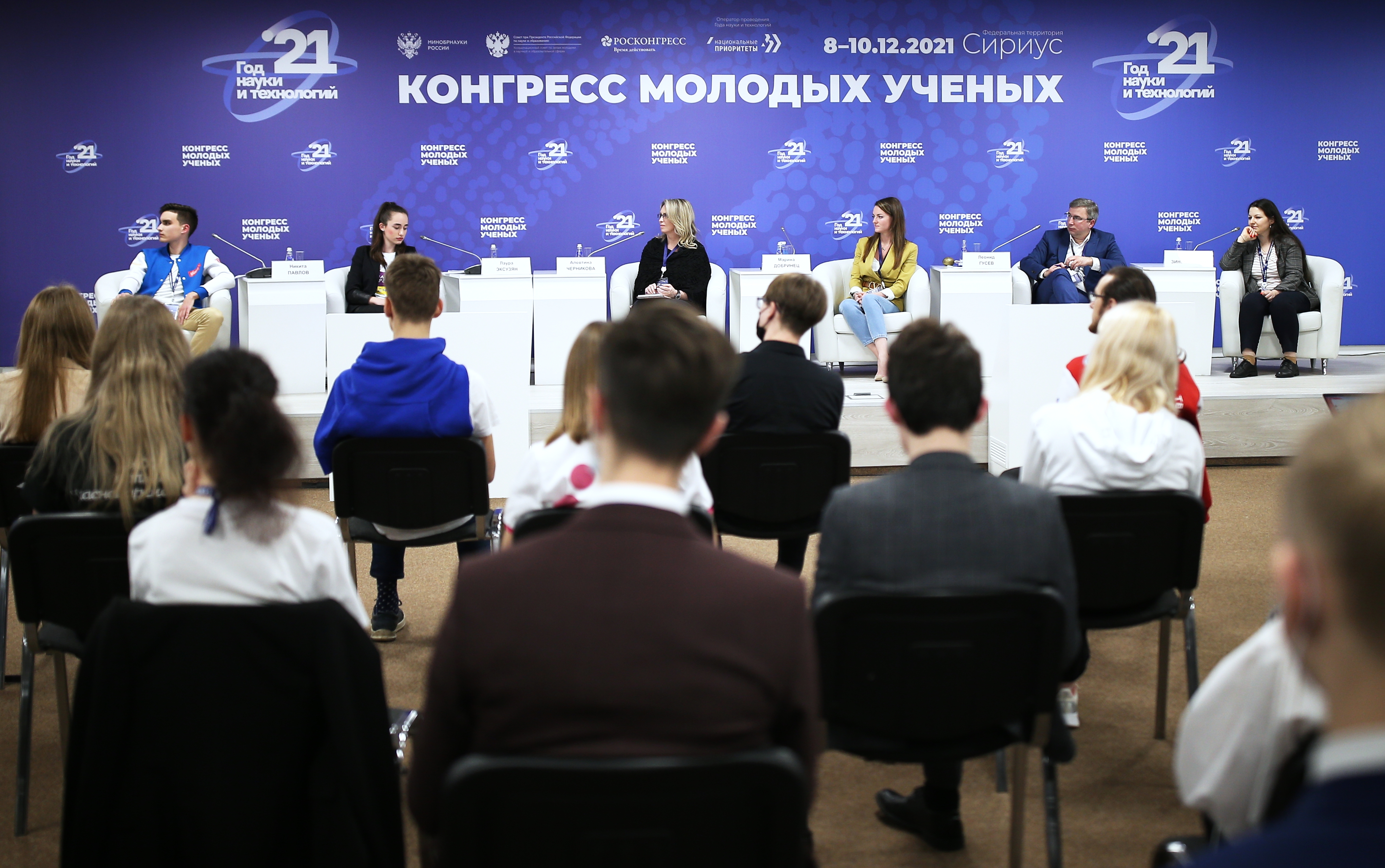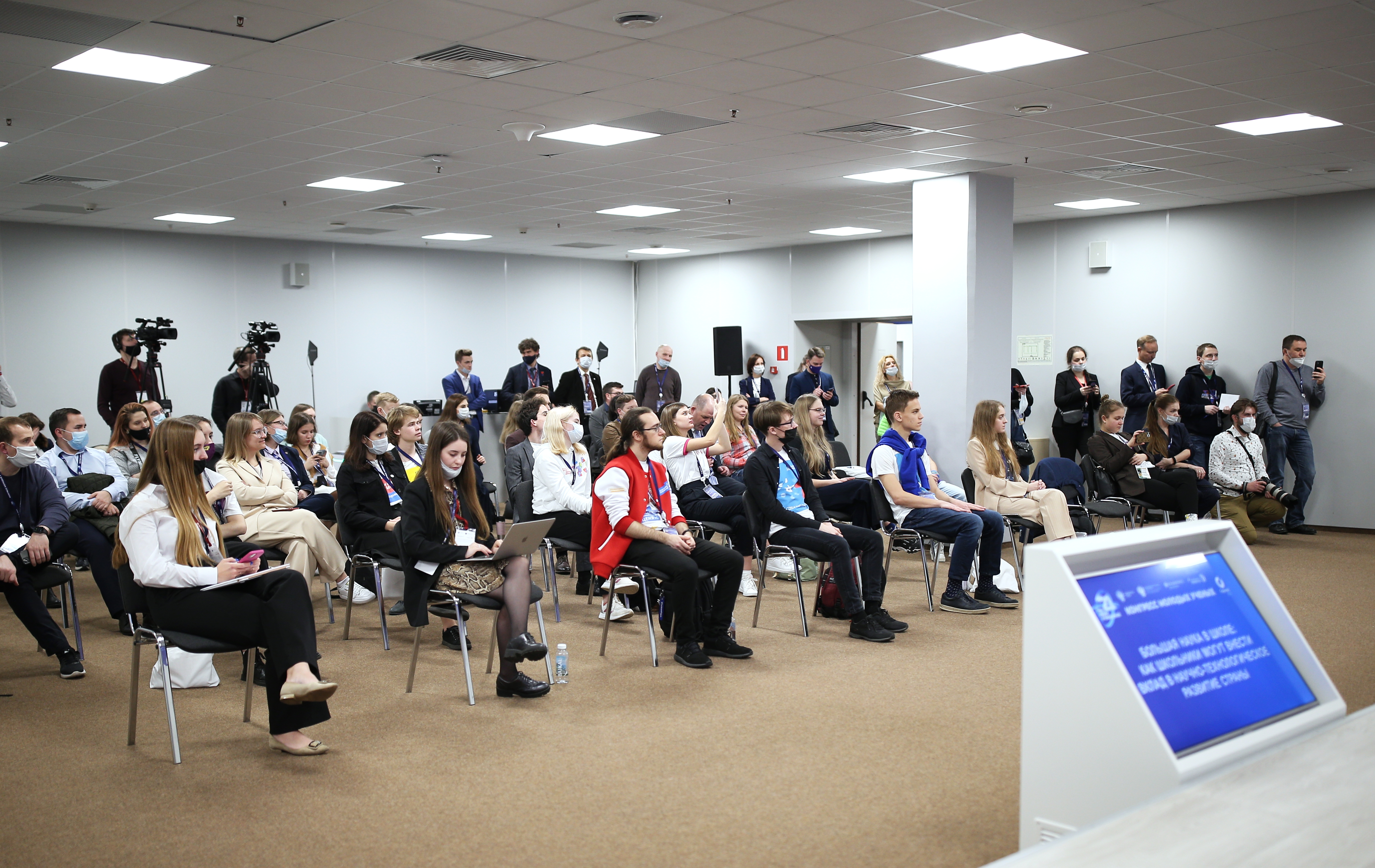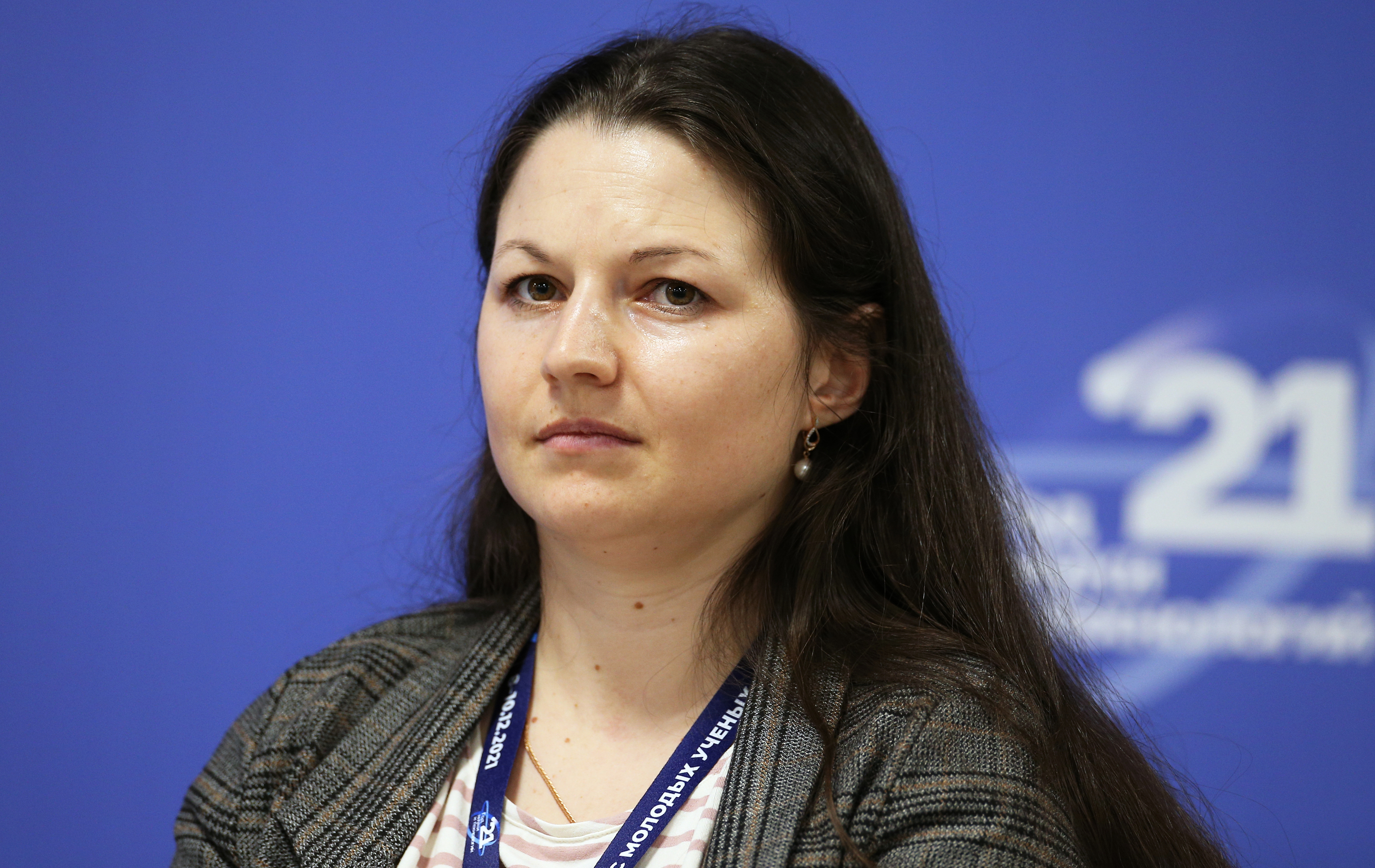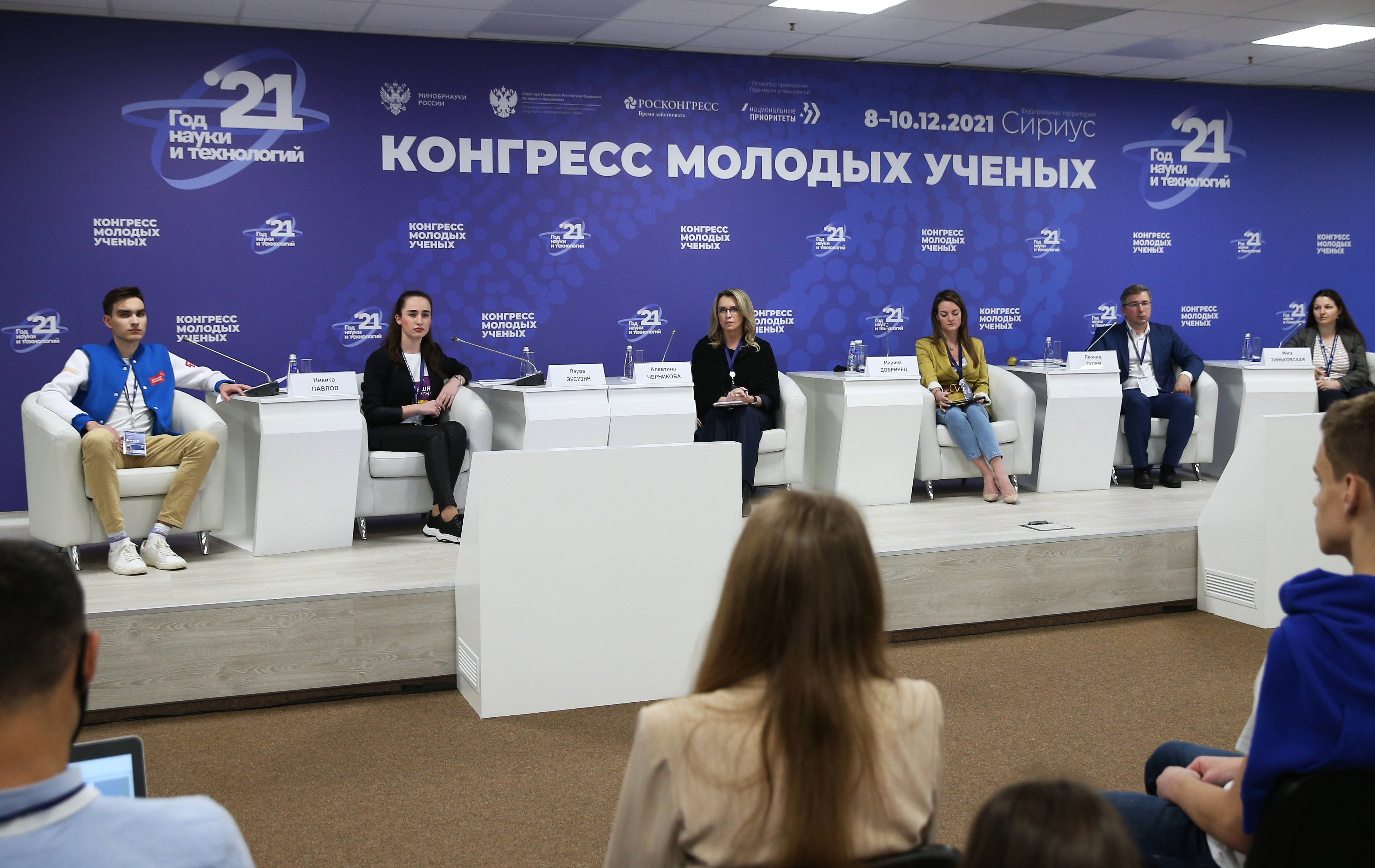JINR invited Russian school children to create ecological atlas of Europe
News, 10 December 2021
The proposal to participate in collecting moss for the scientific study was announced on 9 December, at the Young Scientists Congress in the Sirius educational centre in Sochi. Head of the Sector of Neutron Activation Analysis and Applied Research of FLNP JINR Inga Zinicovscaia invited Russian school children to create an ecological atlas of Europe at the discussion “Big science at school: how school students may contribute to the scientific and technological development of the country”.
Participants of the event discussed numerous questions, like weather it is possible to do science at school or not, what fields of scientific research are most interesting to modern science, how science develops at universities, how to make science popular.
Inga Zinicovscaia answered the question from the host whether it is difficult to overcome stereotypes about women in science. “I do not feel any differences in the attitude to men and women working at JINR. I believe that women in science have been lately vice versa paid special attention and support,” she said.
Speaking about the need to involve schoolchildren in science, the speaker noted that they may contribute to the development of promising fields of scientific research. This would not only help them decide on their career paths but also would provide a chance to get interesting themes for qualifications works. At the same time, working with the young generation allows scientists to consider the tasks being solved from a new angle.
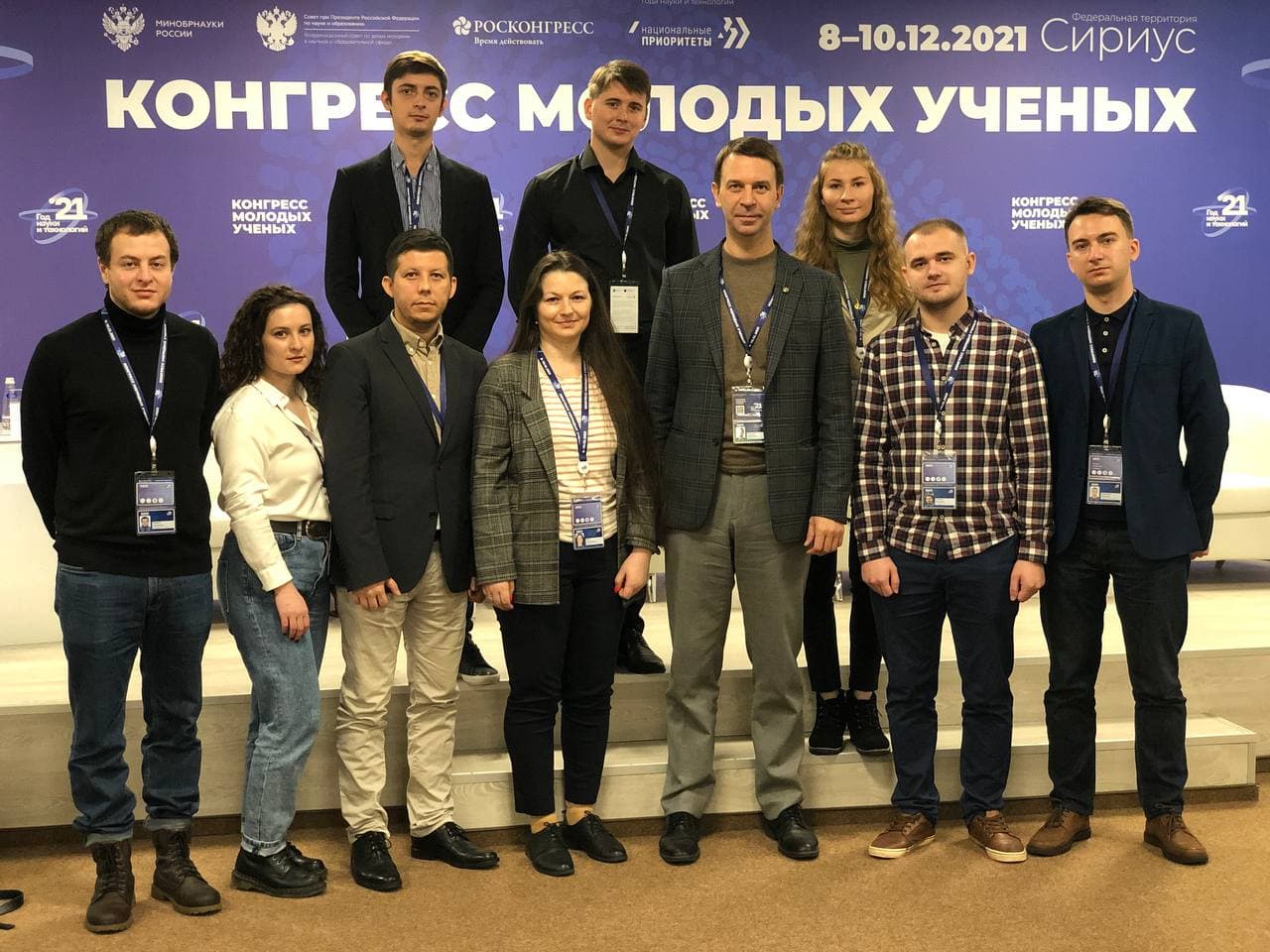 Photos: Vitaly Timkiv / Photohosting of the Young Scientists Congress
Photos: Vitaly Timkiv / Photohosting of the Young Scientists Congress
“It is necessary to attract the youth to scientific activities since school. For example, JINR conducts ecological studies, in particular, specialists monitor atmospheric precipitation of heavy metals. Moss is a biomonitor that we analyse to assess the air quality. This is a huge scientific programme being fulfilled in the framework of the UN. It is the type of work in which school children of various ages can take an active part. We have already had cases of school students supervised by their classroom teachers taking samples of moss,” Inga Zinicovscaia gave an example of implementation of civil science at JINR.
In conclusion, the speaker noted that the youth is the catalyst that will always contribute to the development of scientific activities. “Today, I have realised that you also can teach us many things. I wish you to be individuals and not be afraid of anything. You can reach any heights: there are no obstacles in science. It is just important to always defend your point of view. My most significant wish is to choose the direction and to get a job that would bring you joy,” Inga Zinicovscaia said to school children.
Nikita Pavlov and Laura Eksuzyan, winners of the Big Break All-Russian Competition for higher school students in the nomination “Change the world around!”, moderated the round table. Participants of the event were also other winners of the Big Break Competition in various nominations: Yaroslav Basov, Alexander Voronin, Vladislav Rogozin, and Natalia Erdeli who presented their competition works to the audience.
The speakers of the round table were NUST “MISiS” Rector Alevtina Chernikova, MSU Vice-Rector, Head of the Directorate of the NAUKA 0+ All-Russian Festival Leonid Gusev, Head of the Information and Youth Policy of Bauman Moscow State Technical University Marina Dobrinets, the author and host of the popular science NTV television programmes Sergey Malozemov.
